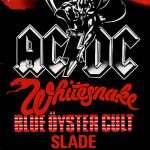Pitney lies three miles distant from High Ham. A tiny village tucked into the fold of the undulating Somerset countryside, it has suffered the fate of many similar villages. Its school is long closed. The church of the parish of Pitney Lortie, a compact medieval building, has not seen a priest of its own for decades. The village’s public house, a place of fine beer and fine food, lies out of the village, on the main road between Langport and Somerton; equidistant between the two towns, it is appropriately called Halfway House. A farm shop reflects the growing desire of shoppers to buy produce directly from producers. Pitney epitomises rural England, a place deep-rooted in the past that has adjusted to the Twenty-First Century.
Until last year, on the first weekend in July, Pitney held PitFest, its annual two day music festival; from lunchtime to midnight over the weekend there was non-stop live music. Such events depend upon a mass of volunteers, from the organizing committee through to those who perform the numerous practical tasks, there were people who ran that festival as a labour of love.
Pitney’s festival, which has been cancelled again this year, was one among the hundreds that take place each summer in communities throughout the country. Music and dance, arts, literature, sports, history, vintage cars, steam engines, food and drink, the festivals are diverse and plentiful and reflect a vibrancy in rural communities.
Festivals are part of a revival of community identity. Parish councils have found a renewed sense of purpose in conservation and heritage and community-organisation. Details of meetings are posted on village notice boards and public gatherings are keenly attended.
It would be impossible to calculate the hours of time voluntarily committed within a single parish, if that time was extrapolated across the country, the total would be many billions of hours. Turn to government economic statistics and one will search in vain for any recognition of that voluntary work.
If events such as PitFest were evaluated for economic purposes, there would be the cost of equipment hire and refreshments and such other monetary payments that were made, but no value at all attributed to the work of those who were volunteers.
The paradox is that communities in rural areas were enjoying an unprecedented vibrancy, they might have had activities unimagined by former generations. In its failure to allow communities to resume normal life the government is failing to take account of the significance of countless events. Traditional economics is inadequate to the current times; statistics need to include indices of things worth more than money payments.


